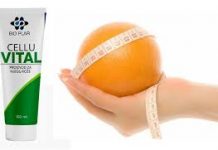Sports nutrition is a field of nutrition that creates a relationship between food and sport, with the aim of improving the performance and recovery of the body, whether it is high-performance athletes, amateurs or regular physical exercise.
- This area is attracting more and more interest from professionals, along with the search for people to exercise and adapt their diet to the demands of training.
- A nutritional specialist therefore plays an essential role, who can adapt individual needs according to the practiced modality and its goals.
In this article, we will discuss what are the main nutritional recommendations of macronutrients for athletes and sportsmen and what changes in relation to inactive individuals. Check it out!
What changes in exercisers and athletes?
First, let’s clarify why some recommendations and nutritional needs may differ in sports. First, exercisers have a higher daily caloric expenditure, which leads to an increase in their energy needs to meet this requirement without compromising health and performance.
Since food is one of the fundamental pillars for improving performance and recovery, there are a number of strategies in sports nutrition that must be individually adjusted. And this varies according to: the level of training, the type of modality, the goals within this modality, the stage of competition the athlete is in, the intensity and volume of training and, of course, according to the reactions of each person to nutrients.
Below are the best macronutrient nutritional recommendations for athletes and active individuals. carbohydrates

Carbohydrates (CHO) are one of the macronutrients that arouse the most interest in sports, as they are the main source of energy for exercise, serve to improve performance and replenish energy reserves.
CHOs are stored in the form of muscle and liver glycogen, and physical exercise directly affects the availability of this supply according to the intensity, duration and frequency of training. If these energy stores are depleted, this will inevitably lead to a decline in performance, increasing the chance of fatigue.
For this reason, recommendations for CHO intake for athletes differ from those for the general population. The guidelines summarized in the table below provide these recommendations in grams (g) per kilogram (kg) of body weight and serve as a basis for sports nutrition. In addition to quantity, CHO intake should be planned for specific times of the day. On race or competition days, strategies can also be used to increase these reserves for better performance.
Proteins
- Along with CHO, proteins (PTN) are also very important for athletes, mainly because a sufficient intake of this nutrient is necessary for maintaining, repairing and gaining muscle mass.
- Athletes and sportspeople need more protein to help with metabolic adaptations to training, so you can optimize your performance results.
According to the American College of Sports Medicine (ACSM), the range of protein intake needed for recovery and metabolic adaptation would be 1.2 to 2.0 g/kg/day.




